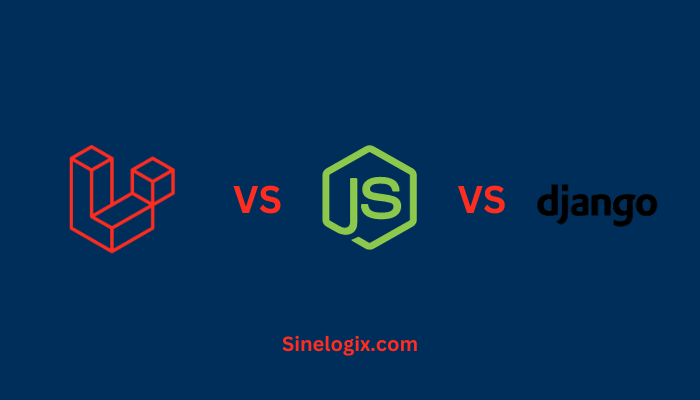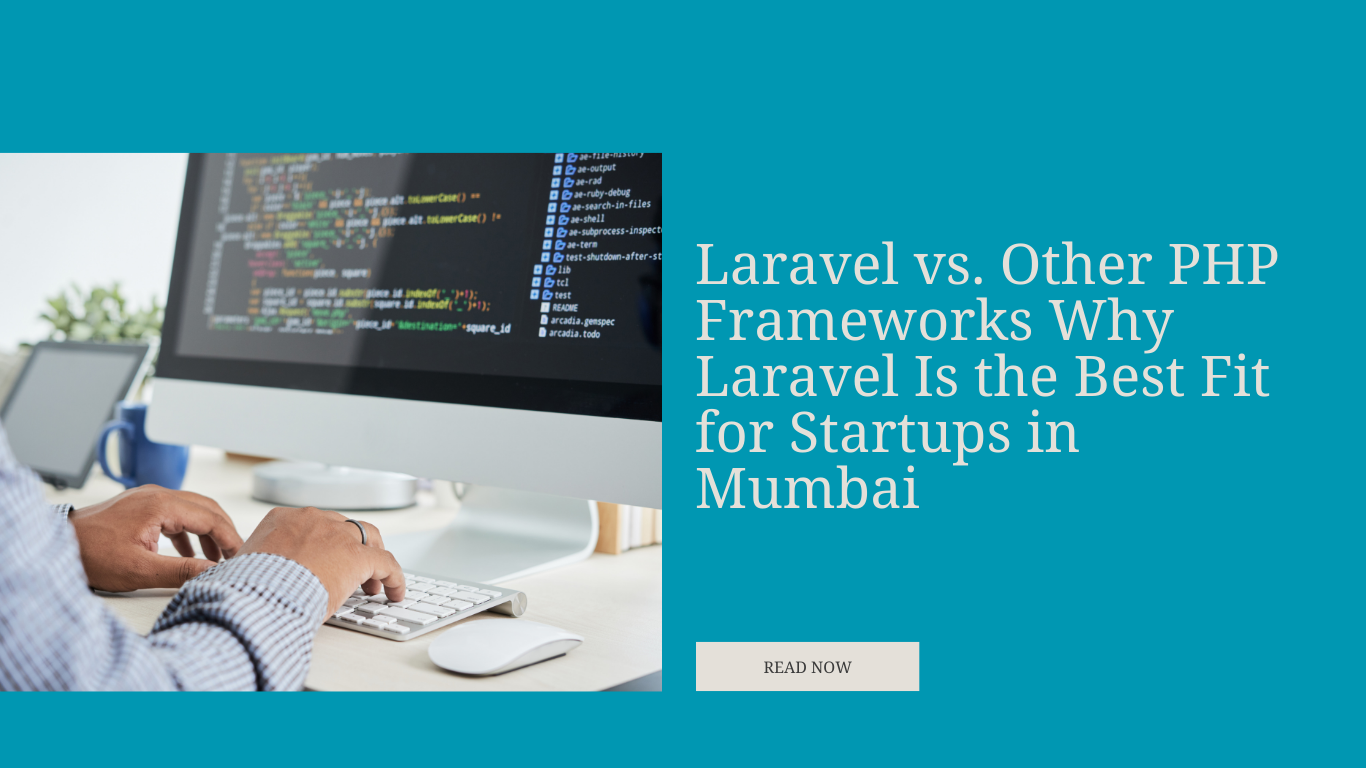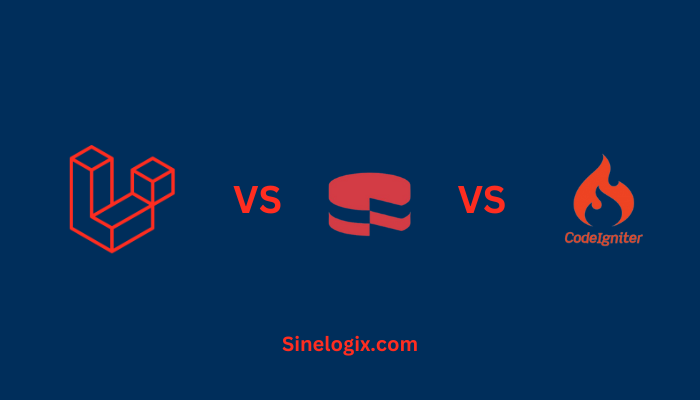SaaS development demands a strategic choice of frameworks to ensure long-term success. Laravel, Django, and Node.js stand out as powerful contenders, each with its unique set of features and capabilities. In this in-depth exploration, we will scrutinize 20 critical aspects to guide you in making an educated decision for your SaaS project.
1. Architecture
Laravel
Laravel adheres to the Model-View-Controller (MVC) architectural pattern. This separation of concerns streamlines code organization, making development more intuitive.
Django
Django follows the Model-Template-View (MTV) architecture, similar to MVC but with a Django-specific approach. This structure enhances code modularity, promoting efficient development.
Node.js
Node.js employs a non-blocking, event-driven architecture, making it well-suited for real-time applications. This approach enables handling a large number of concurrent connections efficiently.
2. Learning Curve
Laravel
Known for its elegant syntax and developer-friendly features, Laravel is relatively easy for newcomers to grasp. The documentation and a thriving community contribute to a smoother learning curve.
Django
Django’s comprehensive features and robust design contribute to a steeper learning curve. However, the wealth of documentation and community support aids developers in mastering the framework.
Node.js
The learning curve for Node.js can be challenging, especially for those new to JavaScript. However, its simplicity attracts developers familiar with the language, facilitating a smoother transition.
3. Community Support
Laravel
Laravel boasts a growing and vibrant community. The availability of resources, tutorials, and packages through Composer enhances development efficiency.
Django
Django’s large and active community contributes to an extensive collection of reusable apps and comprehensive documentation. The wealth of community-driven content aids developers in troubleshooting and learning.
Node.js
Node.js is known for its large and active community on npm, providing a vast ecosystem of modules and libraries. This community-driven approach ensures continual support and innovation.
4. Scalability
Laravel
Laravel scales well for medium to large-sized applications. Laravel Horizon, a powerful dashboard, assists in managing queue workers effectively, contributing to scalability.
Django
Django offers good scalability. The use of Django Channels facilitates the scaling of real-time applications, making it suitable for a variety of projects.
Node.js
Node.js excels in handling a large number of concurrent connections, making it highly scalable for real-time applications. Its asynchronous nature contributes to efficient scalability.
5. Performance
Laravel
Laravel is known for its performance optimization features. While not the most lightweight framework, it strikes a balance between robust features and efficiency.
Django
Django provides solid performance, especially with the use of caching and database optimization techniques. Its performance capabilities make it suitable for various applications.
Node.js
Node.js excels in handling I/O operations, contributing to high performance. Its non-blocking, event-driven architecture enhances the efficiency of real-time applications.
6. Database Support
Laravel
Laravel offers the Eloquent ORM, supporting multiple database systems, including MySQL, PostgreSQL, and SQLite. This flexibility allows developers to choose a database that aligns with their project needs.
Django
Django comes with its ORM, supporting various databases such as PostgreSQL, MySQL, SQLite, and Oracle. This diversity in database support accommodates different project requirements.
Node.js
Node.js provides flexibility in choosing databases, with popular choices being MongoDB for NoSQL and MySQL for relational databases. The flexibility in database selection enhances adaptability to project needs.
7. Community Modules and Packages
Laravel
Laravel has a rich ecosystem of packages available through Composer. These packages cover a wide range of functionalities, simplifying development and saving valuable time.
Django
Django benefits from a vast array of reusable apps available on Django Packages. These apps cover various aspects of development, enabling developers to leverage existing solutions.
Node.js
Node.js leverages npm, offering a massive repository of modules and packages. The extensive library of npm packages provides developers with a broad spectrum of tools and resources.
8. RESTful API Development
Laravel
Laravel features a clean and straightforward syntax, making API development intuitive. Tools like Laravel Passport streamline the development of secure and scalable RESTful APIs.
Django
Django comes with Django REST framework, a powerful toolkit for building Web APIs. This framework includes features like serialization and authentication, contributing to efficient API development.
Node.js
Node.js offers frameworks like Express.js for building robust and scalable RESTful APIs. The flexibility of Node.js allows developers to tailor API development to their specific project requirements.
9. Real-time Application Support
Laravel
Laravel supports real-time features through tools like Laravel Echo and broadcasting events with WebSocket support. This capability makes it suitable for applications requiring live updates.
Django
Django utilizes Django Channels to handle WebSockets, enabling the development of real-time applications. This extension enhances Django’s capabilities for real-time functionality.
Node.js
Node.js excels in building real-time applications with frameworks like Socket.io. Its event-driven architecture contributes to efficient handling of real-time features.
10. Template Engine
Laravel
Laravel uses Blade, a lightweight yet powerful templating engine with a clean syntax. Blade’s simplicity and efficiency contribute to a seamless development experience.
Django
Django employs its template engine, providing powerful template inheritance, inclusion, and template tags. The template engine enhances code readability and maintainability.
Node.js
Node.js typically relies on frontend libraries like React or Angular for building user interfaces. The flexibility in choosing frontend frameworks allows developers to tailor the user interface to their preferences.
11. Security
Laravel
Laravel implements security features like CSRF protection, encryption, and Eloquent ORM to prevent SQL injection. Its security measures contribute to robust protection against common vulnerabilities.
Django
Django prioritizes security with built-in protections against common vulnerabilities, such as CSRF, SQL injection, and clickjacking. The framework’s security features provide a solid foundation for secure development.
Node.js
Security measures in Node.js depend on external libraries, and developers must be diligent in implementing best practices. Proper configuration and adherence to security guidelines are crucial for ensuring a secure application.
12. Community Momentum
Laravel
Laravel is experiencing significant growth in popularity, with a focus on modern PHP development. The framework’s momentum is driven by its developer-friendly features and efficient development workflow.
Django
Django is a well-established and mature framework, maintaining its popularity and continually evolving. The framework’s strong foundations contribute to its enduring appeal among developers.
Node.js
Node.js maintains a strong developer interest, driven by its widespread use in building scalable network applications. The framework’s versatility and performance capabilities contribute to its continued momentum.
13. Testing Capabilities
Laravel
Laravel comes with PHPUnit for unit testing and supports testing at various levels. The clean and expressive syntax of Laravel’s testing tools facilitates efficient test development.
Django
Django integrates Django’s testing framework, facilitating unit testing, functional testing, and end-to-end testing. The comprehensive testing capabilities contribute to the reliability of Django applications.
Node.js
Testing tools like Mocha and Jest are popular choices in the Node.js ecosystem. These tools provide comprehensive testing capabilities, ensuring the robustness of Node.js applications.
14. Community Documentation
Laravel
Laravel offers comprehensive documentation, making it easy for developers to get started and find solutions to common issues. The well-organized documentation enhances the development experience.
Django
Django is known for its thorough and well-organized documentation, covering all aspects of the framework. The comprehensive documentation serves as a valuable resource for developers at all skill levels.
Node.js
Documentation quality may vary based on the specific libraries and frameworks used in a Node.js project. However, popular frameworks and libraries often have extensive and well-maintained documentation.
15. Dependency Management
Laravel
Laravel utilizes Composer for managing dependencies. Composer streamlines the process of integrating third-party packages, contributing to efficient dependency management.
Django
Django uses pip for Python packages, ensuring efficient dependency management. The straightforward package management system enhances the modularity of Django applications.
Node.js
Node.js leverages npm for dependency management, providing a vast repository of modules and libraries. The npm ecosystem facilitates seamless integration of external modules into Node.js projects.
16. Code Organization
Laravel
Laravel emphasizes clean and organized code structure, following the MVC pattern. This structured approach enhances code readability and maintainability.
Django
Django enforces a project structure that promotes code organization, with apps for modular development. The organized structure contributes to a systematic and efficient development process.
Node.js
Developers have more flexibility in organizing code in Node.js projects, with common practices varying based on the chosen framework. Adherence to consistent coding practices is crucial for maintaining code quality.
17. Community Feedback and Support
Laravel
Laravel is known for its active community engagement and responsive support forums. The vibrant community provides valuable feedback and assistance to developers.
Django
Django has a dedicated community that actively participates in discussions and provides support through various channels. The collaborative nature of the Django community contributes to a supportive development environment.
Node.js
Node.js benefits from an engaged community, with forums and online discussions offering assistance. The collaborative nature of the Node.js community ensures a wealth of knowledge-sharing opportunities.
18. Ease of Deployment
Laravel
Laravel streamlines deployment with tools like Laravel Forge and Envoyer. These tools simplify the management of server configurations, contributing to a smooth deployment process.
Django
Django offers deployment flexibility, with options ranging from traditional hosting to containerized solutions like Docker. The diverse deployment options cater to different project requirements.
Node.js
Deployment in Node.js can vary based on the chosen hosting environment. Whether deploying on traditional servers or opting for cloud-based solutions, Node.js provides flexibility in deployment options.
19. Industry Adoption
Laravel
Laravel is gaining popularity in various industries, particularly in web development and SaaS applications. Its developer-friendly features and modern PHP development approach contribute to its widespread adoption.
Django
Django is widely used in sectors such as content management, e-commerce, and data analysis. The framework’s versatility and scalability make it suitable for diverse industry applications.
Node.js
Node.js is prevalent in the development of real-time applications, APIs, and microservices across diverse industries. Its efficiency in handling concurrent connections contributes to its widespread adoption.
20. Community Events and Conferences
Laravel
Laravel hosts annual conferences like Laracon, providing a platform for developers to connect and share insights. These events foster collaboration and knowledge sharing within the Laravel community.
Django
Django participates in events like DjangoCon, fostering collaboration and knowledge sharing among the community. These events provide valuable opportunities for networking and staying updated on emerging trends.
Node.js
Node.js engages developers through events like NodeConf, offering networking opportunities and discussions on emerging trends. Community events contribute to the vibrant and collaborative nature of the Node.js ecosystem.
Related Articles:
Conclusion
In this comprehensive comparison of Laravel, Django, and Node.js, we’ve delved into 20 key aspects to provide a nuanced understanding of each framework’s strengths and weaknesses. The choice between these frameworks depends on your specific project requirements and development preferences. Whether you prioritize ease of development, scalability, or real-time features, each framework has distinct advantages. Consider the insights provided here as a guide to selecting the framework that aligns best with your SaaS development goals.




